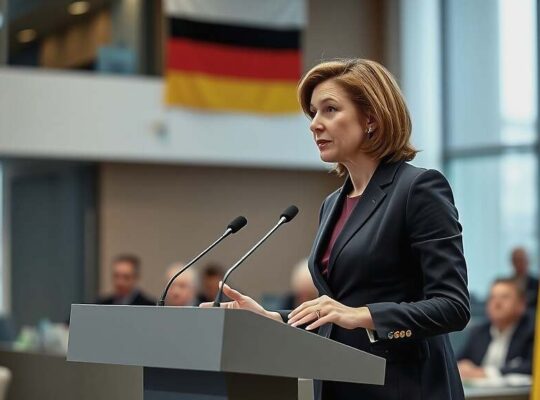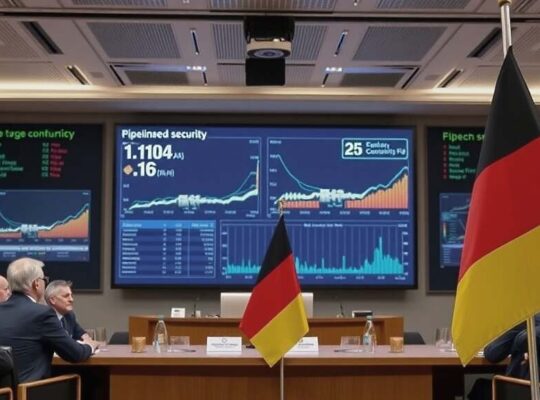Berlin is poised to significantly increase financial aid to Ukraine, signaling a deepening commitment despite growing domestic political scrutiny. According to sources within the German government and coalition partners, revealed in a report by “Handelsblatt”, the planned support for the coming year is expected to rise by approximately €3 billion. This would bring the overall allocation to €11.5 billion, a substantial increase from the previously budgeted €8.5 billion for 2026.
While the precise details pertaining to the aid package are still under discussion between the Chancellery, the Federal Ministry of Finance and the Federal Ministry of Defence, the consensus within the government circles suggests an increase of this magnitude is nearing finalization. The move is expected to be formally presented during the upcoming parliamentary debates on the 2026 budget, slated for completion next week.
The additional funding will bolster the government’s “Empowerment Initiative” the primary conduit through which Germany has channeled assistance to Ukraine since the onset of the Russian invasion in February 2022. This initiative encompasses both civilian and, crucially, military support, underlining the ongoing emphasis on Ukraine’s defense capabilities.
The decision comes amidst a backdrop of intensifying debates within Germany concerning the long-term sustainability of such considerable financial commitments. Critics, particularly within the Free Democratic Party (FDP), have voiced concerns regarding the impact on Germany’s own domestic priorities and the potentially inflationary effects.
The increased allocation, while demonstrating continued solidarity with Ukraine, is likely to reignite those internal political tensions and demands for greater transparency and accountability regarding the utilization of these substantial funds. Observers anticipate fierce parliamentary questioning regarding the specific criteria for aid distribution and the demonstrable impact of German assistance on the evolving security landscape in Eastern Europe. The ongoing debate highlights a complex balancing act for the German government: maintaining a robust support system for Ukraine while addressing the increasing pressure to prioritize domestic economic stability and fiscal responsibility.












